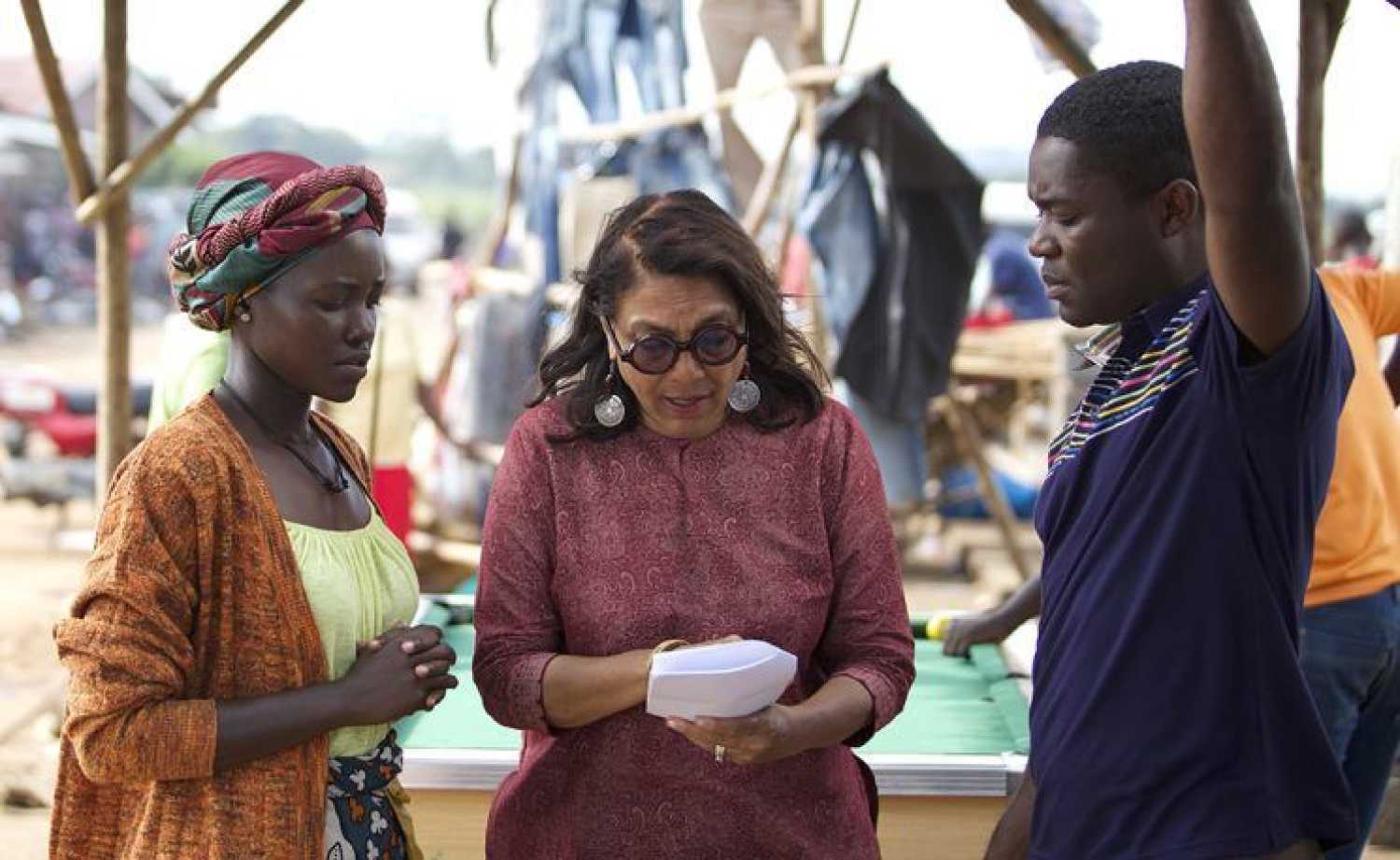From New Delhi to New York and now Kampala, Mira Nair’s films reflect the stories of the cities she has inhabited. Her latest film, Queen of Katwe, starring David Oyelowo, Lupita Nyong’o and newcomer Madina Nalwanga is a feel-good saga of an unlikely African champion.
New York, Delhi, Kampala: Three cities that shaped Mira Nair's films
Mumbai - 06 Oct 2016 15:03 IST
Updated : 07 Oct 2016 11:25 IST


Sonal Pandya
Queen of Katwe doesn’t look like any Disney movie you’ve seen. For one, it’s set in a slum of Uganda’s capital, Kampala, called Katwe. The real-life story is based on the journey of Uganda’s first female chess champion, Phiona Mutesi. Her uplifting story is a reminder of the grit and perseverance one needs to succeed in life when all the odds seem stacked against you.
For director Mira Nair, the film is personal in many ways. Kampala is just one of the cities that Nair happens to call home for the past 27 years. She resides there for some part of the calendar year with her husband, Mahmood Mamdani, who grew up there (her other residences include New Delhi and New York). With Queen of Katwe, Nair has now told the tales of the three cities that have shaped her career and her life.
Nair is probably the most honoured Indian filmmaker. Her films have picked up the Golden Camera award at Cannes, been nominated for an Academy Award and Nair became the only female filmmaker to win the Golden Lion award at the 58th Venice Film Festival for Monsoon Wedding (2001).

Set in New Delhi, Monsoon Wedding revolved around the days leading up to an arranged marriage between two well-off families. Shot with a small budget over a month with handheld cameras, the film’s dialogue was a mix of English, Punjabi and Hindi. The script was written by Sabrina Dhawan, a graduate of Columbia's film programme. Nair is an adjunct professor at Columbia as well.
Monsoon Wedding’s characters — from the harried parents of the bride to the cousin hiding a devastating secret — resonated with audiences around the world. Nair, who was born in Rourkela, Odisha moved to New Delhi at 11. She studied sociology at Delhi University and her familiarity with the city shows in the film. As does her love and affection for the country she grew up in.
Nair gained fame, nationally and internationally with Salaam Bombay (1989) but she shows more of herself in Monsoon Wedding. She dedicated the film to her family; several members of the Nair clan made special appearances. When she won the Golden Lion in Venice, Nair said, “This one is for India, my beloved India, my continuing inspiration. I just wanted to explore something very personal about my family, and families in general, in a free way.”

Five years later, she adapted Jhumpa Lahiri’s novel, The Namesake for the big screen. In it, she brought to life the Indian immigrant experience alive with the depictions of the travails the characters faced as they adjusted to a different life and culture from what they had known growing up in India. Like Ashoke Ganguli (played by Irrfan Khan), Nair too emigrated from India to USA to study. She went to Harvard University on a full scholarship. The Namesake was emblematic of the second life Nair inhabited when she resides in New York city when she teaches at Columbia University.
Through her association with the university, she set up the Maisha Film Lab in Kampala. Maisha means ‘life’ in Swahili and the programme is set up in 2005 to encourage local talent find their voices in an industry that doesn’t always support outsiders.
The motto at Maisha states “If we don’t tell our stories, no one else will.” Fittingly, this also applies to Queen of Katwe. This very African story based on Tim Crothers’s book of the same name was brought to life due to the determination of Nair and a Disney executive, Tendo Nagenda, with Ugandan roots. Nair’s 1991 film Mississippi Masala featured a Ugandan-Indian family who moves to USA, but she hadn’t based an entire film in Uganda before.
Nair got that opportunity with Disney who agreed to the film after she made a 13-minute short film focusing the life story of Phiona’s coach, Robert Katende. The tone of the short film and the final feature is similar, showing the tenacity of its protagonists. Queen of Katwe holds parallels between the difficult game and life lessons, especially apt when young chess player Gloria introduces Phiona to the sport and says, “In chess, the small one can become the big one.”
The ebullient sports story primarily works because of the effortless cast and Nair’s colourful direction. Oscar winner Lupita Nyong’o gets a chance to show off her acting chops again with this film. Nyong’o plays Phiona’s mother Harriet, a young widow with four children (one deceased) who approaches life with the fierceness of a lioness. David Oyelowo becomes Katende, an earnest former chess champion himself who works at a sports ministry and wants only the best for his young pioneers.
But it is newcomer Madina Nalwanga, who particularly shines as she demonstrate the joy and despair of trying to forge a better life for herself and her family through chess. Nalwanga won the role after the filmmakers had already auditioned 700 girls. She and the other young children in the film win you over with their infectious smiles.
With Queen of Katwe, Nair brings forward her own unique take on what it means to be a global citizen. In an interview, Nair said, “With this movie, I got to show what I know and love about Kampala, from the fisherman at the edge of Lake Victoria to the colours of Katwe.” But more importantly, it shows its African characters, not merely as background characters, but heroes in their own story.
Queen of Katwe releases 7 October across theatres in India.



